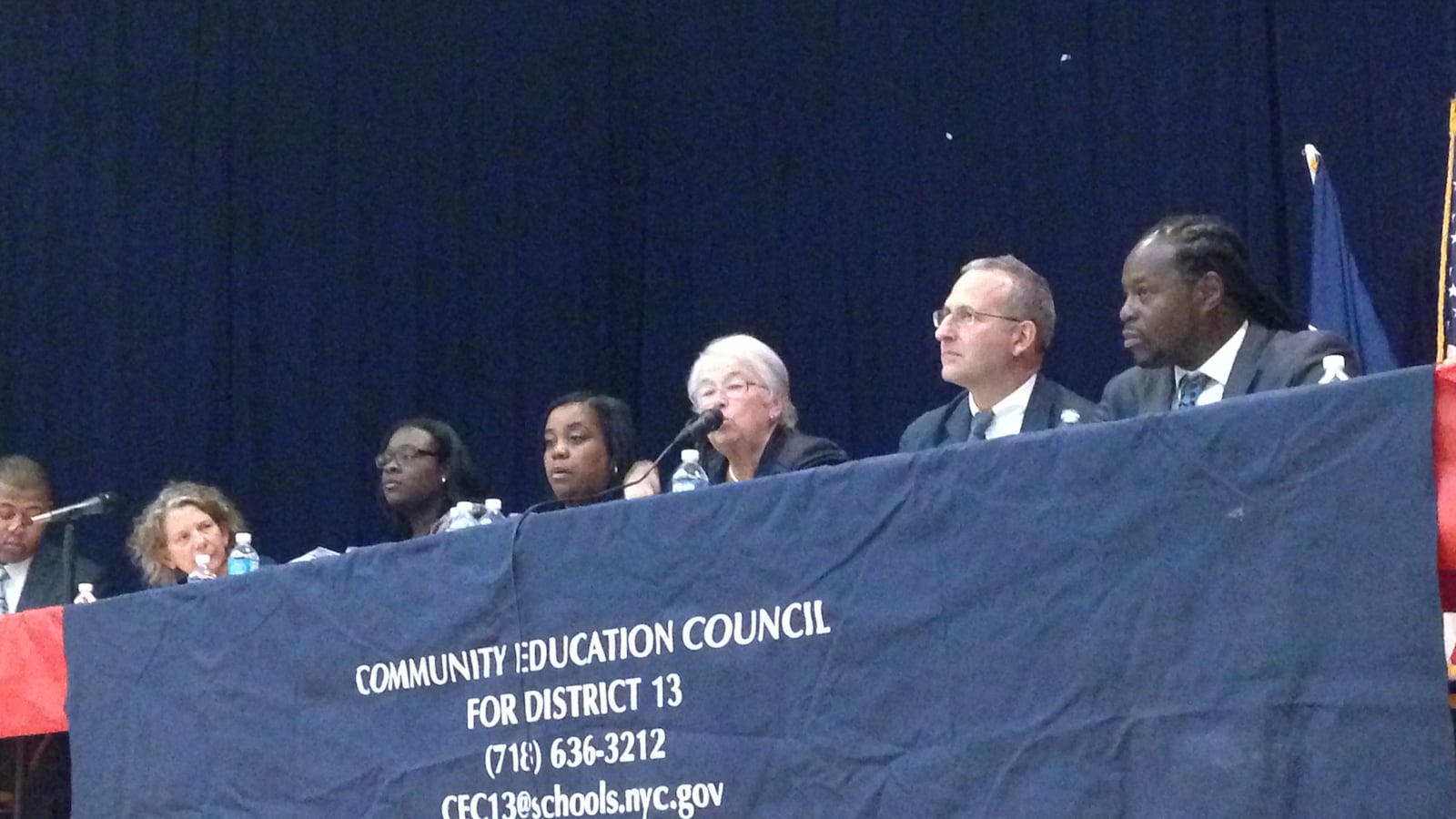The city plans to announce its new fleet of district superintendents on Tuesday after requiring sitting leaders to reapply for their jobs, Chancellor Carmen Fariña said Monday.
The announcement will be the culmination of a staffing overhaul for the city’s 32 community districts, which oversee the city’s elementary and middle schools. The re-hiring process, which began in late August, is a major step toward reshaping the role of the superintendents, whose duties were diminished under the previous administration.
The shifts include a new requirement that superintendents have 10 years of experience, and seem designed to shake up the ranks of the superintendents. Fariña has warned that the leaders will be held more accountable for some of her priorities, including parent engagement and arts offerings at the schools they oversee.
“Certainly they’re going to have additional powers,” Fariña said of the superintendents, who under state law are responsible for evaluating principals and schools. “This is going to be a chance to get it right and make sure that schools have what they need.”
In addition to being a principal’s boss, superintendents were historically tasked with providing suggestions about who should be hired and what curriculums schools should use. Under former Mayor Michael Bloomberg, superintendents were stripped of their influence over school-level decisions, and principals now contract with support networks that provide help with school budgets, curriculum and staffing — a system designed to increase efficiency and give principals more freedom.
But critics have said the arrangement has made for a scattered accountability system and that the move away from geographic districts has weakened community ties, and Fariña has made no secret of her dissatisfaction.
At a town hall meeting with District 13 parents, Community Education Council President David Goldsmith said that he welcomed the city’s new attention to superintendents, who he sees as best able to quickly intervene at a school that is struggling.
“When I first became the CEC president, I presided over all these school closings and I’d hear these tales of woe where schools disintegrated over a five-year period. And my first reaction was, who’s in charge here?” Goldsmith said.
Fariña said Monday that District 13 superintendent Barbara Freeman is among those superintendents who will keep her job. Sources said among those who are on their way out are Timothy Behr of District 8 in the Bronx and Mariano Guzman of District 2. Longtime administrator Karen Ames will replace Behr, and Bonnie Laboy, a former superintendent of Queens high schools, will replace Guzman.
A spokesperson for the education department declined to say how many superintendents were being replaced and declined to comment on the staffing changes. But the superintendent turnover began earlier this year, before the school year even began.
This summer, new superintendents took over in Staten Island and in District 27, home to the Queens elementary school whose principal was chronically late or absent but continued collecting payments. In all, at least nine new superintendents were in place at the start of the school year, including four high school superintendents and a superintendent charged with overseeing the city’s struggling schools.
The turnover is also another way that Fariña has been able to empower people who are familiar with key priorities, like community schools and dual-language programs.
The new superintendent in District 6 in upper Manhattan, Manuel Ramirez, was previously principal of the Comprehensive Model School Project M.S. 327, a school that the de Blasio administration has touted as model for schools that share resources with the surrounding community. The new District 9 superintendent, Leticia Rodriguez Rosario, is a former principal of P.S./I.S. 218 Rafael Hernandez Dual Language Magnet School.


